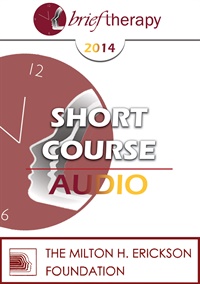
- Average Rating:
- Not yet rated
- Topic Areas:
- Short Courses | Brief Therapy | Footprinting | Relationships
- Categories:
- Brief Therapy Conference | Brief Therapy Conference 2014
- Faculty:
- Susan Dowell, MSW
- Duration:
- 1:27:36
- Format:
- Audio Only
- Original Program Date:
- Dec 11, 2014
- Short Description:
- Footprintings is a projective exploratory model, designed to help patients get unstuck from a self-limiting personal narrative. Nine color sets of Footprintings become literal tools to represent and track shifting states of consciousness and to access untapped resources and body wisdom. This workshop will be both didactic and experiential.
- Price:
- $15.00 - Base Price
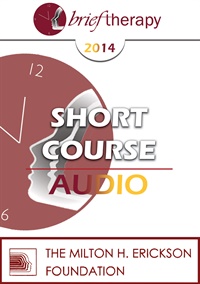
- Average Rating:
- Not yet rated
- Topic Areas:
- Short Courses | Multicultural | Existential Therapy | Brief Therapy | Community | Meditation, Spirituality and Yoga
- Categories:
- Brief Therapy Conference | Brief Therapy Conference 2014
- Faculty:
- Naji Abi-Hashem, PhD
- Duration:
- 1:06:56
- Format:
- Audio Only
- Original Program Date:
- Dec 11, 2014
- Short Description:
- This presentation will explore the major themes, dimensions, and conceptualizations of resiliency from communal, psychosocial, cultural, and spiritual perspectives. We will discuss how to mobilize resiliency within the framework of time-limited soul care and use the dynamic interaction among heritages, norms, traditions, and values, to further the coping, surviving, and thriving strategies. We will argue that resiliency, is not only a psycho-emotional and individualistic potential ability, but also a collective foundation, resource, and faculty stored in the community. Thus, resiliency is a clear function of culture, group identity, and generational wisdom.
- Price:
- $15.00 - Base Price
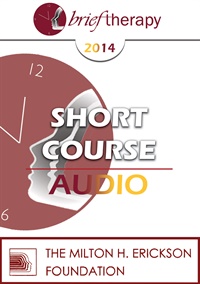
- Average Rating:
- Not yet rated
- Topic Areas:
- Short Courses | Brief Therapy | Hypnosis | Language of Hypnosis | Trauma
- Categories:
- Brief Therapy Conference | Brief Therapy Conference 2014
- Faculty:
- Norma Barretta, PhD | Phillip Barretta, MA, MFT
- Duration:
- 1:12:29
- Format:
- Audio Only
- Original Program Date:
- Dec 11, 2014
- Short Description:
- BT14 Short Course 14 - Tapping into Reserves You Never Knew You Had Using Your Personal Power - Norma Barretta, PhD and Philip Barretta, MA, MFT In the brief treatment of trauma, using hypnosis, not only amplifies the benefits, it also shortens the treatment time. Creating just the right metaphor, choosing the best language patterns, and using the patient’s ( as well as the therapist's) own resources can intensify and direct the deep desire for healing far more quickly than traditional therapy ever could. Tapping into their mutual personal power, enables the intervention. A demonstration of anchoring resources will be part of this short course.
- Price:
- $15.00 - Base Price
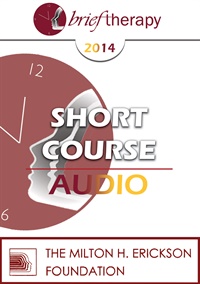
- Average Rating:
- Not yet rated
- Topic Areas:
- Anxiety | Depression | Trauma | Short Courses | Milton Erickson | Brief Therapy
- Categories:
- Brief Therapy Conference | Brief Therapy Conference 2014
- Faculty:
- Dale Bertram, PhD | Mike Rankin, MA
- Duration:
- 1:33:32
- Format:
- Audio Only
- Original Program Date:
- Dec 11, 2014
- Short Description:
- This workshop focuses on the nuts and bolts of providing online Ericksonian Clinical Supervision. It will address how to select an online platform, the major legal and ethical issues in providing online supervision, and a focused discussion on how to utilize the online environment to provide quality supervision. Participants will leave this workshop with a good overview about how to conduct digital (online) supervision in ethical and useful ways.
- Price:
- $15.00 - Base Price
Tags: Anxiety Depression Trauma Brief Therapy
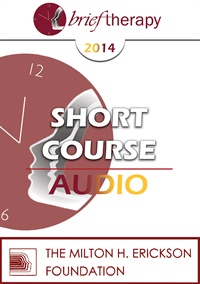
- Average Rating:
- Not yet rated
- Topic Areas:
- Anxiety | Depression | Trauma | Short Courses | Brief Therapy | Ericksonian Hypnosis and Therapy Techniques | Consciousness
- Categories:
- Brief Therapy Conference | Brief Therapy Conference 2014
- Faculty:
- Joseph Dowling, MS, LPC
- Duration:
- 1:27:36
- Format:
- Audio Only
- Original Program Date:
- Dec 11, 2014
- Short Description:
- Milton H. Erickson, M.D. understood that the conscious (thinking) mind is where symptoms are frequently created and cultivated while the subconscious mind is a limitless storehouse of healing energies, potentials, and solutions. This short course will describe a deceptively simple, Ericksonian approach to becoming powerfully calm. Live demonstrations, experiential zone exercises, and case studies will be facilitated to teach how solution-focused questions, strategic interventions, and formal/conversational hypnotherapy effectively treat anxiety, depression, and trauma.
- Price:
- $15.00 - Base Price
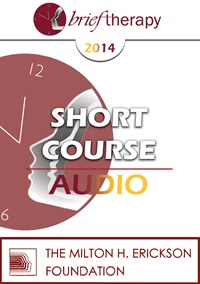
- Average Rating:
- Not yet rated
- Topic Areas:
- Trauma | Short Courses | Brief Therapy | Binds
- Categories:
- Brief Therapy Conference | Brief Therapy Conference 2014
- Faculty:
- John Lentz, D. Min.
- Duration:
- 1:23:01
- Format:
- Audio Only
- Original Program Date:
- Dec 11, 2014
- Short Description:
- This new advanced brief therapy approach uses positive double binds to do intentionally what happens naturally when everything seems to go right. It transforms trauma’s rigid thinking and can greatly assist your clients to heal, make better decisions and believe more positively in themselves and their future.
- Price:
- $15.00 - Base Price
Tags: Trauma Binds Brief Therapy
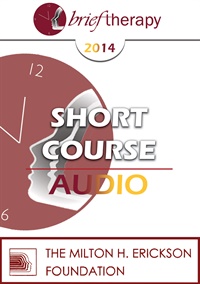
- Average Rating:
- Not yet rated
- Topic Areas:
- Anxiety | Depression | Trauma | Short Courses | Ericksonian Hypnosis and Therapy Techniques | Reality Therapy | Brief Therapy
- Categories:
- Brief Therapy Conference | Brief Therapy Conference 2014
- Faculty:
- Robert Wubbolding, EdD
- Duration:
- 1:29:28
- Format:
- Audio Only
- Original Program Date:
- Dec 11, 2014
- Short Description:
- A demonstration and a 12-minute DVD illustrate how to assist clients to make effective choices satisfying their needs, especially power or inner control. Merging reality therapy with Ericksonian principles helps clients discover and choose alternatives to the manifestations of past trauma, the pain of powerlessness due to anxiety and depression.
- Price:
- $15.00 - Base Price
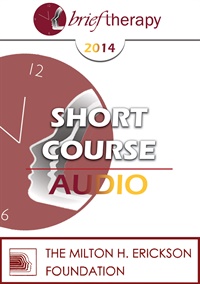
- Average Rating:
- Not yet rated
- Topic Areas:
- Anxiety | Depression | Trauma | Short Courses | Brief Therapy
- Categories:
- Brief Therapy Conference | Brief Therapy Conference 2014
- Faculty:
- Virgil Hayes, DO
- Duration:
- 1:33:07
- Format:
- Audio Only
- Original Program Date:
- Dec 11, 2014
- Short Description:
- There are multiple explanations and theories to explain the creation of anxiety, depression and trauma creation. Many emphasize pathology, permanence of conditions and use multi-syllable words and encourage medical interventions to treat symptoms. This paradigm is often not effective for improving the lives of individuals treated. This course looks at non-medical underpinnings to conceptualize the creation of anxiety, depression and trauma.
- Price:
- $15.00 - Base Price
Tags: Anxiety Depression Trauma Brief Therapy
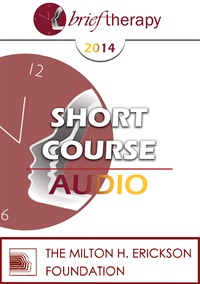
- Average Rating:
- Not yet rated
- Topic Areas:
- Anxiety | Depression | Short Courses | Communication | Neurobiology | Brief Therapy | Trauma
- Categories:
- Brief Therapy Conference | Brief Therapy Conference 2014
- Faculty:
- Bart Walsh, MSW
- Duration:
- 1:31:46
- Format:
- Audio Only
- Original Program Date:
- Dec 11, 2014
- Short Description:
- There are multiple explanations and theories to explain the creation of anxiety, depression and trauma creation. Many emphasize pathology, permanence of conditions and use multi-syllable words and encourage medical interventions to treat symptoms. This paradigm is often not effective for improving the lives of individuals treated. This course looks at non-medical underpinnings to conceptualize the creation of anxiety, depression and trauma. This conceptualization when understood by the clinician; makes them a better facilitator and co-creator in the treatment process. A natural, holistic understanding also empowers the clinician and client and moves all parties involved closer to health.
- Price:
- $15.00 - Base Price
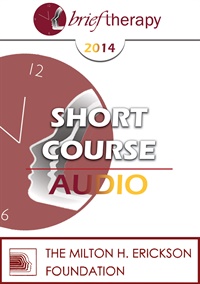
- Average Rating:
- Not yet rated
- Topic Areas:
- Short Courses | Awareness Integration Model | Brief Therapy
- Categories:
- Brief Therapy Conference | Brief Therapy Conference 2014
- Faculty:
- Foojan Zeine, Psy.D., MFT
- Duration:
- 1:21:45
- Format:
- Audio Only
- Original Program Date:
- Dec 11, 2014
- Short Description:
- Everyone has the capability and deserves to live a fulfilled life, however, many get caught in the childhood and traumatic experiences that does not allow clarity to learn and sustain new effective skills. Learn about Awareness Integration Model, a structured brief therapeutic approach that synthesizes numerous theories, resulting in higher self-esteem, releasing negative core beliefs and attached emotional charge, setting goals and action plans to reach the desired life results.
- Price:
- $15.00 - Base Price
Please wait ...

